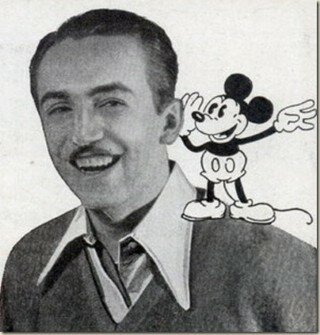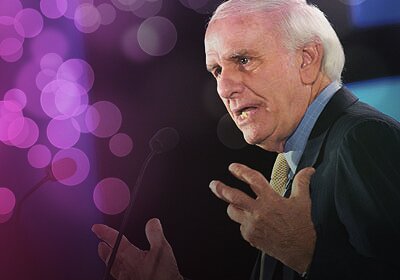This post is part of our Inspirational People series, covering the life stories and lessons from some of the worlds most successful and influential people. For more posts like this one, click here.
Behind every great movie, is a great idea. And behind every great idea is a great person. A person who, strangely enough, was once a lot like you.
Who is Steven Spielberg?
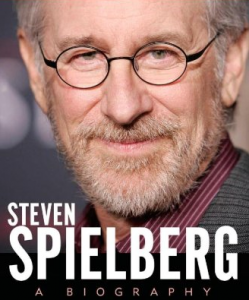 I would be extremely surprised if you told me, you had never heard of the name Steven Spielberg because, Steven Spielberg is a name belonging to a man grabbed the world of cinema by the horns and shook as hard as he could.
I would be extremely surprised if you told me, you had never heard of the name Steven Spielberg because, Steven Spielberg is a name belonging to a man grabbed the world of cinema by the horns and shook as hard as he could.
Spielberg has covered all genres of movies, from Sci-Fi to Drama, and it’s estimated that these movies alone have grossed $8.5 billion worldwide. His career as a director and co-founder of Dream Works movie studios has stretched over four decades. And yet the man has never made a movie that critics haven’t held in great respect.
What Does The Man Behind The Screen Have To Do With You?
When we think of success we think of actors. We think of actresses. We think of screenwriters. But rarely do we consider the figures in the background. And yet, these are one of the best examples of successful creative people.
Whether you like movies or not, it is impossible to deny that directing involves many of the key characteristics we described in our One Life Success pages and posts that can make a person the best that they can be, including motivation, creativity and leadership.
And that’s why I chose to write about Steven Spielberg today. Because I want to stress to you, from one self-developer to another, the importance of looking for inspiration in unlikely places and recognising that it what is learnt from this can be applied to anyone looking for success in any field.
From the Living Room to the Big Screen: How Steven changed the Face of Cinema One Step at a Time…
Early Life
On December 18th, 1946, Steven Spielberg was born in Ohio, Cincinnati, a city known for its large collection of architecture. Steven’s mother, Leah Adler, was a restaurateur and concert pianist. His father, Arnold Spielberg, was an electrical engineer in charge of the development of computers and television. It was his father profession that ensured little Spielberg would grow up surrounded by the growing world of technology and stories combined.
The Spielberg family had four children in total; Annie, Nancy, Sue and Steven. As he was the only boy, Steven was spoiled by his parents and younger sisters and spent his childhood in New Jersey, the place where, when Steven was just six years old, he saw his first movie ‘The Greatest Show on Earth’.
‘The Greatest Show on Earth’ was a Technicolor movie produced and directed by Cecil B. DeMille and featured the circus, train crashes and clowns. The movie had a great impact on Steven and he spent most of his younger years trying to recreate his memories of ‘The Greatest Show on Earth’ by crashing together toy trains and later filming this crash on a Kodak lens. In a speech, later on in life, Steven recalls his first cinema as feeling “like a place of worship”.
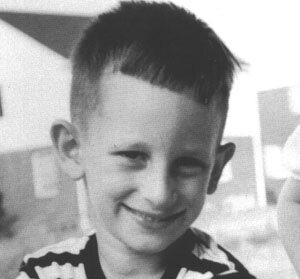 In 1958 Steven became a Boy Scout. It was here that he earned a photography merit badge by making short film ‘The Last Gunfight’ on his father’s movie camera, since the still-camera was broken. The western film lasted nine minutes but Steven recalls the small triumph fondly claiming “That was how it all started.”
In 1958 Steven became a Boy Scout. It was here that he earned a photography merit badge by making short film ‘The Last Gunfight’ on his father’s movie camera, since the still-camera was broken. The western film lasted nine minutes but Steven recalls the small triumph fondly claiming “That was how it all started.”
With a budding passion for cinema and movies, thirteen-year-old Steven got a thirst to start working on larger projects and produced another movie ‘Escape to Nowhere’ in the 1960’s. This 40-minute, prize winning film, was inspired by a battle in east Africa and inspired the young boy to begin making amateur adventure films with his high-school girlfriend Valerie. To these home movies, he charged a small admission of 25 cents.
At the time Steven was unaware this was the start of a very exciting cinema journey. And it wasn’t until Steven was sixteen that ‘Firelight’ his first 140-minute movie was shown in a local cinema. This independent sci-fi adventure generated a profit of only $1 and later inspired Close Encounters; one of Spielberg’s earliest successes in the world of Cinema. During this time he also made several world war two films, inspired by his father’s war stories.
But everything wasn’t all-perfect for Steven. In 1965, when Steven was just nineteen, his parent Leah and Arnold divorced and Steven moved to Arizona with his father where he attended Arcadia High School for three years. During this time, Steven was outcast from the lives of his peers and received an abundance of anti-Semitic abuse.
To make a bad situation worse, despite obvious talents, Steven Spielberg was rejected from film school (twice!) and subsequently became a student at California State University. It was here that Steven studied English under his father’s wish that he have a backup plan.
“My father wanted me to be a teacher because it was a noble profession,” he stated once in an interview, “In case the whole directing thing didn’t work out.” But although Steven defends the honour of teachers as “one of the most unpaid heroes in the entire world,” of course, we know, it never came to this. And he dropped his degree in 1969 to fulfil his directing dream.
Living the Dream
During Steven’s time at University, he had been working at Universal Studios seven days a week without pay as an editor. The young boy was clearly dedicated to his cause and made his first short movie ‘Amblin’ on the job.
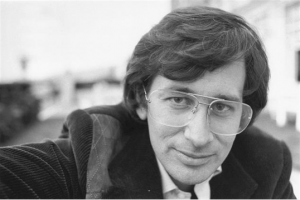 ‘Amblin’ was a life changing move for Steven because as well as inspiring the name for his own studios, later on in life, the movie also got him noticed by the leaders of the studios and in 1969 they offered the young director a long-term deal. Overwhelmed with the idea of working with the Studios, Steven signed becoming the youngest director in the world to ever be signed with a major studio contract.
‘Amblin’ was a life changing move for Steven because as well as inspiring the name for his own studios, later on in life, the movie also got him noticed by the leaders of the studios and in 1969 they offered the young director a long-term deal. Overwhelmed with the idea of working with the Studios, Steven signed becoming the youngest director in the world to ever be signed with a major studio contract.
Shortly after signing with Universal Steven was hired to direct one of the segments for the pilot episode of Night Gallery. Night Gallery was Steven’s first professional TV job and allowed the young director to work alongside Joan Crawford, a woman whom he remained close to up to her death in 1977. From this point on, the small successes grew and grew and there came more and more chances to impress the studios such as directing T.V episodes for leading series’ including The Name of the Game, The Psychiatrist and Colombo.
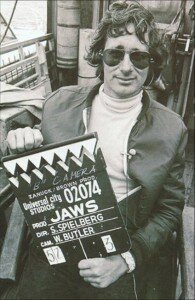 Based on the strength of his work, Universal signed Spielberg to do four TV films and eventually his first cinematic movie, Jaws (1975) which you could argue was the step that gave the young director his biggest break.
Based on the strength of his work, Universal signed Spielberg to do four TV films and eventually his first cinematic movie, Jaws (1975) which you could argue was the step that gave the young director his biggest break.
Jaws, based on Peter Benchley’s horror novel, won three academy awards and grossed $470 million at box office despite the technical faults that occurred in its making and Steven’s name was everywhere from Hollywood to Households and yet he rejected offers to direct Jaws 2 (along with King Kong and Superman) to get involved in one of his own Sci-fi projects ‘Close Encounters of the Third Kind’ in 1977 which was nominated for seven academy awards nominations.
Following this success Steven became involved in projects of all genres from musicals such as The Blues Brothers (1982) to horrors Poltergeist (1982), to action adventure Raiders of the Lost Ark (1981) to sci-fi Twilight Zone: the Movie (1983). Each movie added to the growing collection of creations, skills and talents of this once unpaid Universal Studios intern. It was around this time, Steven met Carrie actress Amy Irving another star on the rise.
1985 was an important year for Steven both domestically and artistically. In terms of home life, the director married Amy Irving and had a son shortly after called Max. In terms of productivity, he released five movies, including The Colour Purple and Back to the Future. All of which were received greatly by his loyal audience.
However, the marriage to Amy was short-lived and unfortunately for Max, Steven and Amy divorced when he was just four years old in 1989. Their divorce hit Steven hard financially and was the third most costly celebrity divorce in history costing Spielberg a grand sum of $100 million.
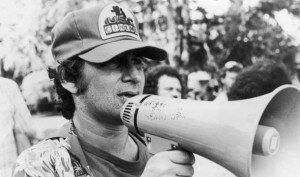 But Steven did not give up and continued making movies, one of which included the third addition to the Indiana Jones, four-piece adventure series, where the director worked along with Star Wars creator George Lucas to bring The Last Crusade to life.
But Steven did not give up and continued making movies, one of which included the third addition to the Indiana Jones, four-piece adventure series, where the director worked along with Star Wars creator George Lucas to bring The Last Crusade to life.
It was on the set The Last Crusade that Steven met his second and current wife Kate Capshaw who played Indiana Jones’ love interest Willie Scott. Kate and Steven married in 1991. They share four homes together and have had five children; Theo (1988), Sasha (1990), Sawyer (1992), Michaela (1996) and Destry (1996) in addition to previous children Max Irving and Jessica Capshaw who had been born from Kate’s previous marriage to Robert Capshaw.
Today
After forty years of groundbreaking work, Steven Spielberg has yet to make, produce or direct a movie that isn’t held up high prestigiously, and for this reason he has influenced countless other directors and inspired budding creators around the world, including myself. Although he is now almost seventy, and worth approximately $3 billion, Steven Spielberg is still making movies and has announced no plans to stop.
I dream for a living. Once a month the sky falls on my head, I come to, and I see another movie I want to make.
If there’s anything that studying Spielberg’s life this past week has taught me it’s that success is as much about the little things we do as the big things. That it’s the little experiences, the little creations, the little sacrifices, the little movies of trains colliding, the little lessons we learn that can have the biggest impact on what ideas we have and what we create because they make the biggest impact on who we are.
What Can You Learn from Steven Spielberg?
Living the dream didn’t come over night for Spielberg, as we now know. It took years before Steven’s love of movies could be applied it to the world of business, and many more years after that before his movies could be shared, loved and held prestigiously by millions of cinema goers.
But because Steven persevered, he is now able to reap the rewards of his success.
Don’t Limit Your Creations…
If you want to make something that truly fulfils your artistic abilities you cannot be afraid to venture. Our mistakes are our greatest teacher and in the early stages of your journey, quite often the ‘what not to write/draw/direct’ is as important to rule out as the ‘what to write/draw/direct’.
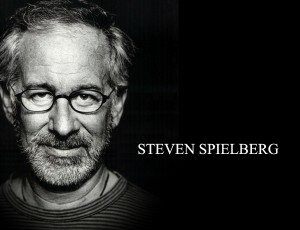 Steven Spielberg has made all kinds of movies, from Sci-fi to Drama to Action, and he’s worked with all kinds of people from Joan Crawford to George Lucus. You can do this too. You have the capability. But first you must be able to channel this kind of flexibility in your smaller creations.
Steven Spielberg has made all kinds of movies, from Sci-fi to Drama to Action, and he’s worked with all kinds of people from Joan Crawford to George Lucus. You can do this too. You have the capability. But first you must be able to channel this kind of flexibility in your smaller creations.
So always remember, creating isn’t about dreaming of success. It’s about feeling the need to write or draw or direct or whatever you do. Stay on top of what you do. Experiment with what you do. Always be thinking about what you do. And, most importantly, love what you do. If you can achieve all this, you can’t go wrong.
Exploit Your Weaknesses…
Steven faced anti-Semitic criticism and bullying throughout this time at Arizona High School. But he didn’t let this get to him, instead he used the anger he felt towards such prejudice to inspire his award winning movie ‘Schindler’s List’.
There will always be times in life when we feel low and weak. Like there’s no hope left for us. But what separates the average person, from the successful person is having the strength to carry on and use the criticism, the doubts, and the hard times to bring meaning to your work.
Having the strength to carry on may come from the people around you, or the inner drive to create. Whatever it is, channel it. And who knows, the people who doubted you so much will maybe, just maybe is watching your movies one day.
Persevere!
When Jaws was being produced there were, famously, more technical problems than teeth in that shark’s jaw. The cast and crew weren’t happy. The author of the best-selling novel wasn’t happy. Steven wasn’t happy. But being the Entrepreneur he was, Steven kept his eyes open, stayed on top and completed the movie. It ended up being his biggest break into the cinema world.
The moral to this story is that when things go wrong, blame yourself.
One of the most important lessons a well-rounded individual can take is to take control of your life. Fearing the unknown won’t get things done. Blaming your cat, your cast, your situation won’t get things done. So believe in yourself and the product you carry. Embrace your fears. And do all you can to stay on track. Nobody is going to drop a great idea into your lap; you have to go out and find that great idea and make those steps yourself.
Get to Work: Life is there to be lived
 It’s all well and great having a talent, a passion, a plan or a dream but everyone has to work their way up from the bottom so it’s a good idea to get started now. When Steven put ‘Firelight’ in local cinema he generated a profit of $1. That’s the equivalent of a Hershey’s bar!
It’s all well and great having a talent, a passion, a plan or a dream but everyone has to work their way up from the bottom so it’s a good idea to get started now. When Steven put ‘Firelight’ in local cinema he generated a profit of $1. That’s the equivalent of a Hershey’s bar!
Experiences are the brightest currency for the creator. Whether that experience involves you spending a year as an unpaid intern, or spending five years writing a book. Steven loved what he was doing and this was enough. And that’s why you are reading about him now.
Spielberg began life; with an enthusiasm for film making toy set movies on cheap hand held cameras. And he’s ending his life, in legacy; on the lips of every man and woman in Hollywood and beyond.
Conclusion
Steven Spielberg didn’t dream of being famous. He didn’t dream of making money. He didn’t even dream of winning Oscars. He dreamt of making movies. And it’s dreams like these that can make a man immortal.
The most important message I want you to walk away with today is that money, awards, fame aren’t everything. They are not your success. They should not be your dream.
All you need to think about now, whilst you’re climbing up towards your success is, does this creation share what I want it to share. If the answer is yes, I want you to close this screen and start living.
Wrote by Aimee Hall

